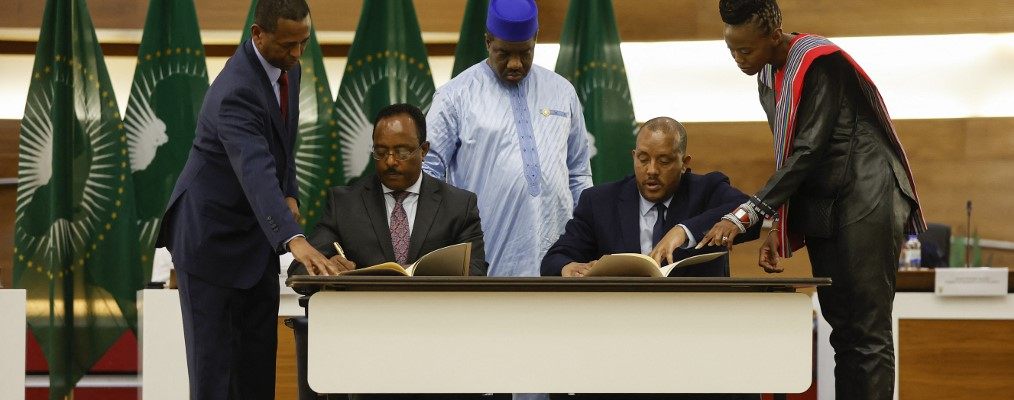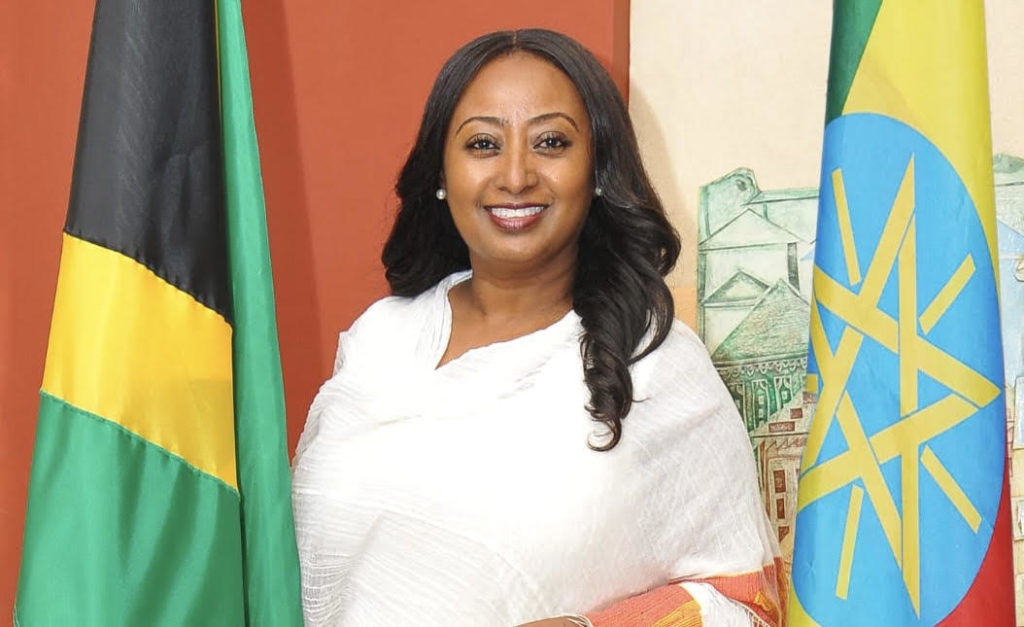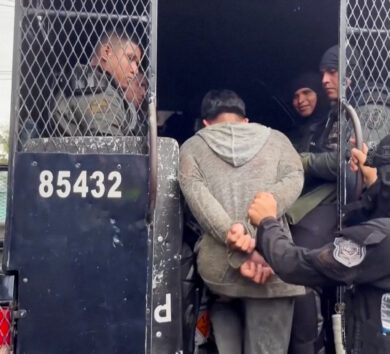

Yodit Hylton/Contributor
The Ethiopian Government and Tigray People’s Liberation Front (TPLF) have signed a peace agreement to end the conflict in the northern region of Ethiopia.
The signing took place on November 2.
The peace talk was mediated by the African Union (AU), led by former Nigerian President Olusegun Obasanjo, as well as an AU mediation team.
Meetings were held in the South African capital, Pretoria, and delegates from both sides of the conflict signed the Agreement for a Permanent Cessation of Hostilities.
Both parties have decided to cease hostilities, restore services and law and order in the affected region, to permit unrestricted access to humanitarian supplies as well as agreed that Ethiopia has only one national defense force. The Agreement also calls for a disarmament plan to be implemented in the period ahead.
“We are ready to implement and expedite this agreement. In order to address the pains of our people, we have made concessions because we have to build trust.”
Getachew Reda, head of the Tigray rebels delegation
The agreement follows recent military gains by the Ethiopian National Defense Force (ENDF), including the capture of the strategic towns of Shire, Axum, Adwa and Mekele in Tigray Region in late October.
Tigray’s rebels hailed the deal and the head of their delegation, Getachew Reda, said: “We are ready to implement and expedite this agreement. In order to address the pains of our people, we have made concessions because we have to build trust.”
Redwan Hussien thanked the mediators of the agreement and “our brothers on the other side (Tigrinya)” for the agreement reached.
“It is now up to all of us to respect this agreement”.
The parties agreed to implement the following 11 points to cement their deal and to end the near two-year conflict:
- As per Article 3 of the Agreement for Lasting Peace and Permanent Cessation of Hostilities, the Representatives of the Government of the Federal Democratic Republic of Ethiopia and the TPLF have agreed to announce to the people of Ethiopia and the rest of the world that after 10 days of intensive negotiations have concluded a peace agreement.
- We have agreed to permanently silence the guns and end the two years of conflict in northern Ethiopia.
- The conflict has brought a tragic degree of loss of lives and livelihoods and it is in the interest of the entire people of Ethiopia to leave this chapter of conflict behind and live in peace and harmony.
- It is fundamental that we reaffirmed our commitment to safeguarding the sovereignty and territorial integrity of Ethiopia and to upholding the Constitution of the Federal Democratic Republic of Ethiopia. Thus, Ethiopia has only one national defense force. We have also agreed on a detailed programme of disarmament, demobilisation, and reintegration for the TPLF combatants, taking into account the security situation on the ground.
- We have agreed that the Government of Ethiopia will further enhance its collaboration with humanitarian agencies to continue expediting aid to all those in need of assistance.
- We have agreed to implement transitional measures that include the restoration of Constitutional order in the Tigray region, a framework for the settlement of political differences, and a Transitional Justice Policy framework to ensure accountability, truth, reconciliation, and healing.
- To start implementing these undertakings without delay, we have agreed to stop all forms of conflicts, and hostile propaganda. We will only make statements that support the expeditious implementation of the Agreement. We urge Ethiopians in the country and abroad, to support this Agreement, stop voices of division and hate, and mobilize their resources for economic recovery and rehabilitation of social bonds.
- The Government of Ethiopia will continue the efforts to restore public services and rebuild the infrastructures of all communities affected by the conflict. Students must go to school, farmers, and pastoralists to their fields, and public servants to their offices. The Agreement requires the support of the public for its smooth implementation. This is a new and hopeful chapter in the history of the country.
- We express our gratitude to all actors contributing to the success of this endeavor. In particular, the African Union Commission Chairperson, the African High-Level Panel led by His Excellency former President Olusegun Obasanjo, supported by His Excellency former President Uhuru Kenyatta, and Her Excellency Dr Phumuzile Mlalmbo, former Deputy President of the Republic of South Africa. We thank the Chairperson of the African Union Commission, His Excellency Moussa Faki Mahamat, Commissioner Bankole Adeoye and his colleagues for their tireless work during these talks. We rely on their continued support as we implement the Agreement.
- We thank His Excellency President Cyril Ramaphosa, the President of the Republic of South Africa, and Her Excellency Dr. Naledi Pandor, the Minister for the Department of International Relations and Cooperation of South Africa for the excellent facilities they put at the disposal of these talks and their words of encouragement to the parties towards these successful results. We are indebted for the hospitality accorded to us by the People and Government of the Republic of South Africa.
- We are grateful to the people of Ethiopia for encouraging these talks and patiently waiting for the outcome. We are confident that they will embrace the results of these talks and ensure their timely implementation.

Yodit Hylton, the honorary consul for Ethiopia in Jamaica, in welcoming the very positive development in the civil strife between the two parties, said: “This is indeed a stepping stone to the full-blown peace implementation plan which is needed to stabilise Ethiopia, its economy and society”.
Hylton further expressed her hope for a successful outcome to the implementation of a lasting peace and stability in Ethiopia.
Ethiopia Prime Minister Dr Abiy Ahmed also expressed gratitude to former President Obasanjo and the other mediators on the conclusion of the peace talks, saying in a statement that the Government’s commitment to the implementation of the agreement was strong.
- Yodit Hylton is honorary consul for Ethiopia in Jamaica.







Comments